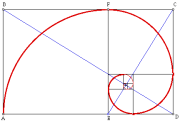Upgrading the CPU pt3 – Selecting A Processor
In the preceding articles in this series I described how receiving my copy of Windows 7 triggered in me the very geeky impulse to upgrade my machine’s hardware capabilities — to go along with my first (good) 64-bit OS. If you are new to this series of How To’s, please click the provided links and read the first two before reading further here.
1) Replacing or Upgrading Your CPU
2) Replacing or Upgrading Your CPU – Pt 2
In those articles, we established the three things we need to know before shopping for a processor (so that the CPU will fit and function), namely — Manufacturer/socket type/motherboard’s chipset. (The instructions for how to do that are in pt2.)
* In my RL case, that was: Intel/Socket 775/G33.
* In my hypothetical Pentium 4’s case, that was: Intel/Socket 775/915G
By consulting the chipset/CPU compatibility tables on the Intel website, we discover that the:
* G33 chipset can accommodate: pretty much any socket 775 processor.
* 915G chipset can accommodate: Pentium 4 (up to #672) and Celeron D (#351)
So that latter is a no go. I would reco forgetting an upgrade. Leave it as is and/or new machine is the way to go. So let’s keep going, but assume that we have a chipset more like the 33G — and we can choose from any of the Intel Socket 775 CPUs including the “Core” series duals and quads. OK?
Since I’m thinking quad-core, I see that there are more than a dozen “Core 2 Quads” to choose from (the Core 2 Extreme editions are too pricey for me) … and if I mix in “extreme” dual cores.. it’s a lot to pick from!
(AMD users will follow essentially the same steps but on the AMD website. AMD has a “wizard” to help you narrow down your search too, based on some answers you provide. Click here to see that. AMD has at least as many to choose from — Phenom vs Phenom II and X3 and X4 as well as different model #s.)
CPU “Factors”
| # of cores | Speed | Wattage | Performance |
There are a lot of CPU’s to choose from and it’s easy to get confused by all the specs. There are many websites that are dedicated to nothing but hardcore Geeks trying to squeeze the maximum performance from each and every component, and they have published many CPU comparisons (and tricks). Sometimes these Geeks call themselves “gamers”.. and they like the word “extreme” (a couple of clues for you, there).
There are also many reviews posted (sometimes.. conflicting).
 I am going to save you some trouble. I am simply going to point you to two of my favorite sites which have CPU comparison charts which will look like the sample shown and tell you that the longer bars are better.
I am going to save you some trouble. I am simply going to point you to two of my favorite sites which have CPU comparison charts which will look like the sample shown and tell you that the longer bars are better.
These are “standard” benchmark scores. (If you are thinking of overclocking, you can find benchmarks and scores for those too, but I don’t discuss OC-ing here. UltimateExtremeGamer.com is more the place for that.)
The two places I look for these scores are:
* Tom’s Hardware (in particular, the 3DMark Vantage 1.0.2 CPU)
* Passmark
I put Tom’s first because you really can “drill down” into CPU performance scores, as several different benchmarking tests are run, and videographers might decide on a different CPU than a gamer will (for example). Also, you can get a feel for pricing, and read reviews and recommendations there. Anyone considering an upgrade (of any kind) should make a stop at Tom’s.
Okay. That’s it for today. Go have fun looking at some charts. In Part 4 I will explain the “factors”, and how they will help you have a smooth installation of the CPU you decide to go with.
Copyright 2007-9 © Tech Paul. All rights reserved.![]() post to jaanix
post to jaanix
| Share this post : |  |

 Subscribe to Tech--for Everyone by Email
Subscribe to Tech--for Everyone by Email












Great article again! Looking at the chart, it looks like the Wolfdale performed pretty well for its price.
LikeLike
Dominic,
Again I thank you, and again I am going to ask you to return — not so much for the advice I will offer around power & cooling, but for my bottom line conclusions about CPU upgrades.
(That’s my ‘closer’, so I don’t want to give away the show…)
Just curious.. what is the model# of the chip you’re considering upgrading?
LikeLike
Thanks for the reply Paul. I was looking at this processor:Intel Core 2 Duo E8500 Wolfdale 3.16GHz 6MB L2 Cache LGA 775 65W Dual-Core Processor. It would replace an older Core 2 duo that has a clock speed of 2.13 GHZ. I believe it is the 6400. I also may have a use for the 6400, so upgrading won’t be a complete loss of the older core 2 duo.
LikeLike
Dominic,
Both are good chips and either will serve the “average computer user” well. But the “enthusiast” will clearly prefer the former.
I don’t know that I would choose to upgrade a dual-core to a dual core though..
I would like to refer you to Adrian Kingsley-Hughes picks as top CPU’s, here.
LikeLike
Thanks for the replies Paul!
LikeLike
Dominic,
Thank you for participating.
I know my responses were a bit general (non-specific)…
LikeLike
I would say L2 Cache is an important consideration too. Chip companies will repackage essentially the same processor into different packages with the only major difference the amount of memory. A core 2 duo with 3MB L2 cache is going to be clearly superior to a celeron with 512KB even with the same number or cores and clock speed.
LikeLike
jgoto,
I absolutely agree. And there are other “factors” worthy of consideration too — such as FSB speed and “hyperthreading”, to name just two.
But Tech – for Everyone is aimed at the “average computer user”, who most likely will give you a very strange look if you start using words like “L2 cache”.. So I simply refer to the performance charts which will reflect the larger L2.
LikeLike
I appreciate and very glad nice answers kudos
LikeLike
Benter Keziah,
Thank you.
LikeLike